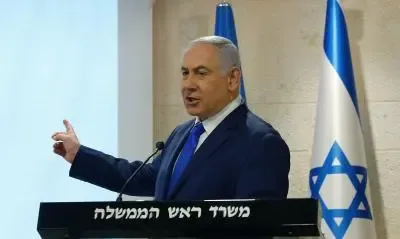Why Did Israel Strike Syrian Forces in Sweida?

Synopsis
Key Takeaways
- Israeli military strikes aimed to protect the Druze community.
- Escalating tensions followed a ceasefire announcement.
- Local Druze fighters retaliated against Bedouin attackers.
- Security concerns plague the road between Sweida and Damascus.
- Violent incidents highlight the deteriorating security situation.
Jerusalem, July 15 (NationPress) Israeli Prime Minister Benjamin Netanyahu and Defence Minister Israel Katz announced on Tuesday that they have ordered military action against Syrian forces in the southern province of Sweida, citing the need to safeguard the Druze community in the region.
This decision followed the declaration of a ceasefire in Sweida by Murhaf Abu Qasra, the chief of Syrian defense authorities. Reports from Xinhua news agency indicated that Syrian forces had already entered the area.
In a joint announcement, Netanyahu and Katz stated that they commanded the military to "immediately strike" Syrian military installations and personnel in the vicinity to "prevent the Syrian regime from endangering" the Druze community, emphasizing their "deep fraternal alliance" with Druze citizens in Israel and their historical connections to those in Syria.
The Israeli military reported that it targeted Syrian armored vehicles and rocket launchers. They observed convoys of Armored Personnel Carriers and tanks moving toward Sweida on Monday evening and also targeted access routes to "disrupt their arrival".
Additionally, the military noted that it is "continuously monitoring developments and remains ready for defense and various scenarios."
The conflict roots back to an incident where a young Druze man was assaulted and robbed by armed Bedouins near a temporary checkpoint at al-Masmiyah. Local Druze fighters retaliated by detaining several Bedouin members, escalating tensions.
On July 12, heavy gunfire and shelling resonated throughout the city, compelling many residents to stay indoors and prompting urgent calls from community leaders for intervention to de-escalate the situation.
In recent months, recurring incidents of kidnapping and armed assaults have plagued the crucial road connecting Sweida to Damascus. Locals attribute the violence to a deteriorating security situation and the lack of state control over armed factions.







